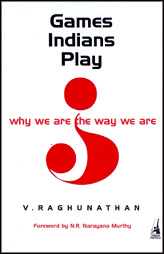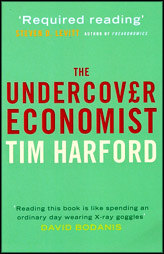THe Standard & Poor Guide to Selecting Stocks
Learn the secrets of stock screening to see what the pros use to uncover bargain stocks ahead of the crowd.
Picking winning stocks is not easy to do. Yet for more than a century, the experts at Standard And Poor's have shown time and again that they know which factors to screen for and which to ignore in selecting stocks poised to provide better-than-average returns.. .
The Standard And Poor's Guide to Selecting Stocks shows you step-by-step ways to discover good investment candidates in a time-saving and inexpensive way. Compiled by veteran Standard And Poor's analyst Michael Kaye, this valuable inside look features: . . Insight into allowing investors to compare one investment to another . Giving direction to when to buy or sell a security . Real-world examples of Standard And Poor's unique blend of qualitative (analyst-driven) and quantitative (model-driven) approaches in action . . .
Standard And Poor's stock reports are the financial industry standard, with more than 100 independent global research analysts providing detailed coverage of over 1,900 companies. Discover what Standard And Poor's analysts do to locate stocks with the greatest growth potential, and how you can use their techniques to enhance your long-term returns, in The Standard And Poor's Guide to Selecting Stocks.. . . .
More than 10,000 equities are publicly traded on U.S. exchanges alone. Daunted by this overload of alternatives, many investors rely on "hot" tips, media sound bites, and subjective personal experience to decide which stocks to buy.. .
A growing number of professional and individual investors, however, have begun to use easy-to-follow "screening" techniques to reduce theunprecedented universe of investment possibilities into a far more manageable group. These techniques remove emotion and force greater discipline into the investment process, helping investors to choose stocks based on characteristics that are important to them and to be more proactive and objective when comparing possibilities.. .
Despite this success and popularity, screening is a subject about which little has been written. The Standard And Poor's Guide to Selecting Stocks corrects this oversight, detailing specific screening techniques used by Standard And Poor's analysts to find stocks that have the greatest potential for upside growth with minimal downside risk. Explaining screening concepts in plain English and accessible mathematics, this market-ready research manual reveals: . . Steps in the screening process, along with where to find and how to use the best screening tools . Specific techniques for screening for growth, value, dividends, or momentum, along with stocks in individual sectors . Ten characteristics to avoid, from high debt to overly expensive valuation . Which financial data are both readily available and valuable as filtering criteria . Factors that should be stressed when screening for mutual funds and bonds . Reverse engineering strategies for analyzing and replicating the results of top investors and techniques . A valuable listing of websites with stock screeners . Examples of stock, bond, and mutual fund screens . . .
Investors often devote more attention and analysis to where they will eat Saturday night than to where they will invest their life savings. The Standard And Poor's Guide to Selecting Stocks helps to take the mystery and subjectivity outof the stock selection process as it unveils a disciplined, detailed methodology for screening and selecting investments based on solid financial and personal criteria..
The analysis and exclusive data that help Standard & Poor's professionals find hot stocks--now available to you
"The Standard & Poor's Guide to Selecting Stocks" reveals the stock selection methods of Standard & Poor's--the preeminent global provider of independent, highly valued investment data, valuation, analysis, and opinions. Clear descriptions give you the guidance to screen for stocks that meet criteria essential to receiving a STARS recommendation, from earnings momentum, to historic reaction to interest rate changes, earnings quality, governance superiority, and more.
Picking winning stocks is not easy to do. Yet for more than a century, the experts at Standard And Poor's have shown time and again that they know which factors to screen for and which to ignore in selecting stocks poised to provide better-than-average returns.. .
The Standard And Poor's Guide to Selecting Stocks shows you step-by-step ways to discover good investment candidates in a time-saving and inexpensive way. Compiled by veteran Standard And Poor's analyst Michael Kaye, this valuable inside look features: . . Insight into allowing investors to compare one investment to another . Giving direction to when to buy or sell a security . Real-world examples of Standard And Poor's unique blend of qualitative (analyst-driven) and quantitative (model-driven) approaches in action . . .
Standard And Poor's stock reports are the financial industry standard, with more than 100 independent global research analysts providing detailed coverage of over 1,900 companies. Discover what Standard And Poor's analysts do to locate stocks with the greatest growth potential, and how you can use their techniques to enhance your long-term returns, in The Standard And Poor's Guide to Selecting Stocks.. . . .
More than 10,000 equities are publicly traded on U.S. exchanges alone. Daunted by this overload of alternatives, many investors rely on "hot" tips, media sound bites, and subjective personal experience to decide which stocks to buy.. .
A growing number of professional and individual investors, however, have begun to use easy-to-follow "screening" techniques to reduce theunprecedented universe of investment possibilities into a far more manageable group. These techniques remove emotion and force greater discipline into the investment process, helping investors to choose stocks based on characteristics that are important to them and to be more proactive and objective when comparing possibilities.. .
Despite this success and popularity, screening is a subject about which little has been written. The Standard And Poor's Guide to Selecting Stocks corrects this oversight, detailing specific screening techniques used by Standard And Poor's analysts to find stocks that have the greatest potential for upside growth with minimal downside risk. Explaining screening concepts in plain English and accessible mathematics, this market-ready research manual reveals: . . Steps in the screening process, along with where to find and how to use the best screening tools . Specific techniques for screening for growth, value, dividends, or momentum, along with stocks in individual sectors . Ten characteristics to avoid, from high debt to overly expensive valuation . Which financial data are both readily available and valuable as filtering criteria . Factors that should be stressed when screening for mutual funds and bonds . Reverse engineering strategies for analyzing and replicating the results of top investors and techniques . A valuable listing of websites with stock screeners . Examples of stock, bond, and mutual fund screens . . .
Investors often devote more attention and analysis to where they will eat Saturday night than to where they will invest their life savings. The Standard And Poor's Guide to Selecting Stocks helps to take the mystery and subjectivity outof the stock selection process as it unveils a disciplined, detailed methodology for screening and selecting investments based on solid financial and personal criteria..
The analysis and exclusive data that help Standard & Poor's professionals find hot stocks--now available to you
"The Standard & Poor's Guide to Selecting Stocks" reveals the stock selection methods of Standard & Poor's--the preeminent global provider of independent, highly valued investment data, valuation, analysis, and opinions. Clear descriptions give you the guidance to screen for stocks that meet criteria essential to receiving a STARS recommendation, from earnings momentum, to historic reaction to interest rate changes, earnings quality, governance superiority, and more.
Top rated books in this category






























